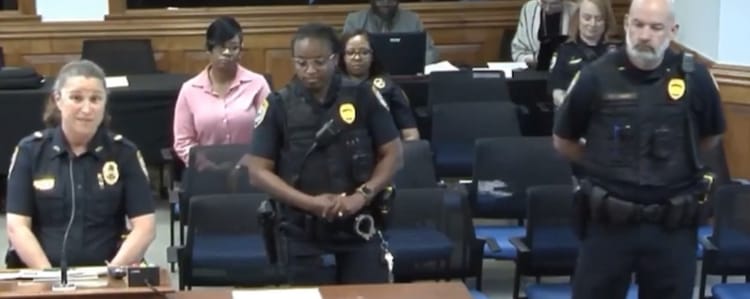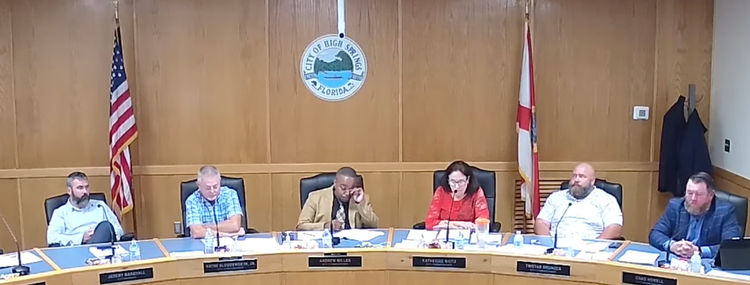Environmentally Friendly or Financially Irresponsible? City to Spend Nearly 600k on ‘Big-Belly’ Solar Powered Trash Cans
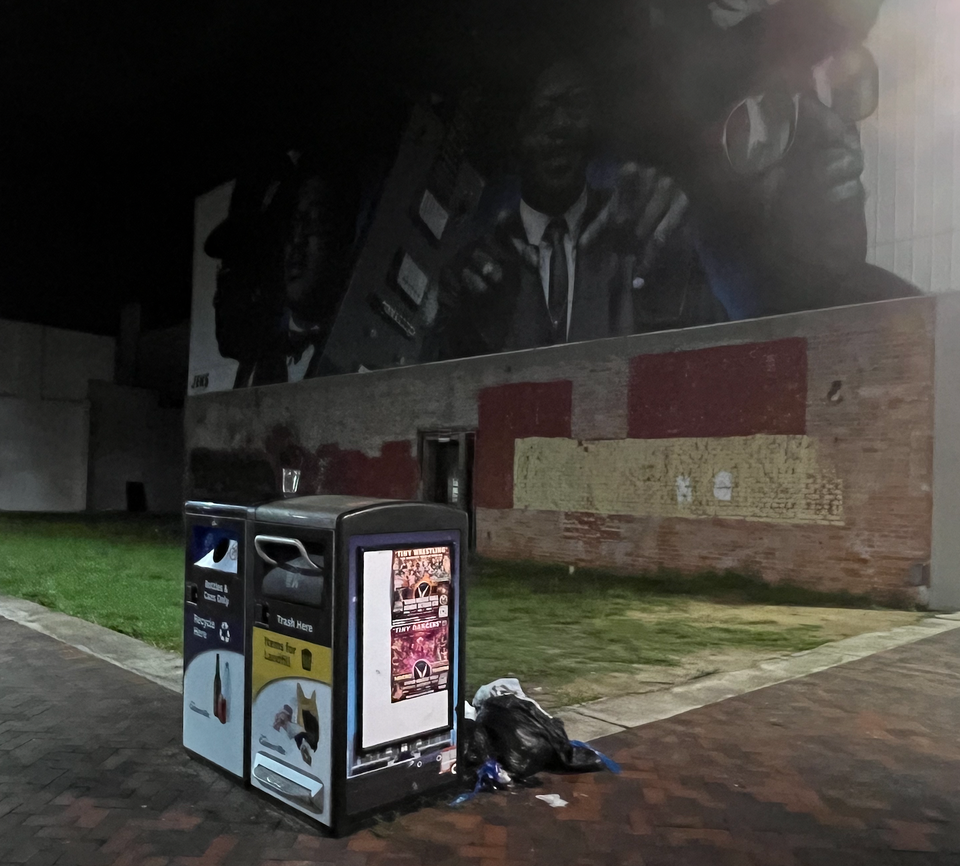
At the City Commission meeting this Thursday, local officials are set to approve a $589,518 purchase for 75 Big-Belly solar powered trash cans via consent agenda.
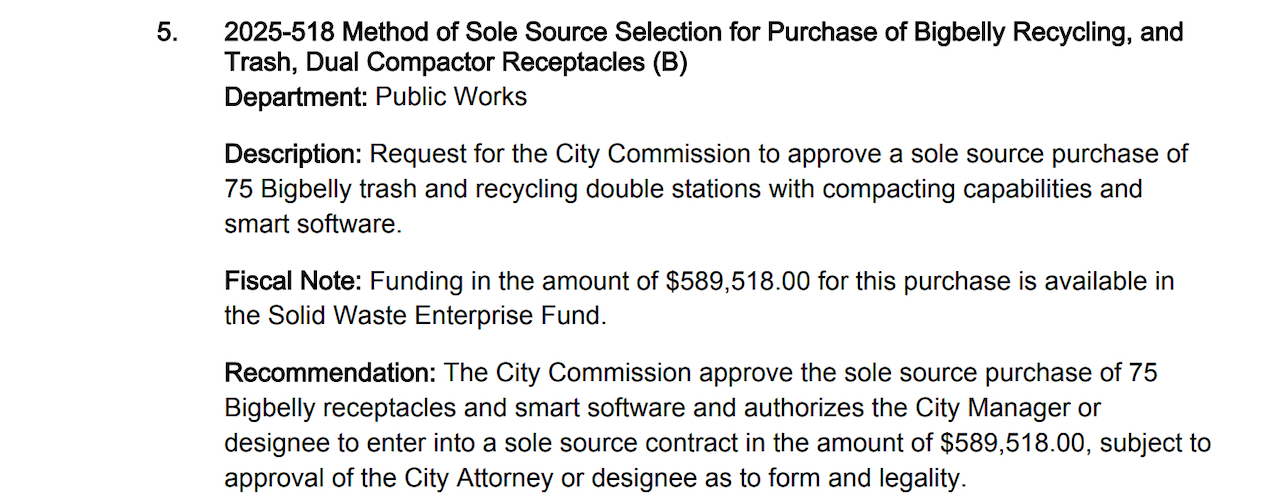
Items on the consent agenda are generally approved by commissioners without discussion because they’re deemed non-controversial.
The trash cans have 150 gallons of capacity and notify city workers when they are full.
Since 2024, the city installed 45 Big-Belly trash cans, according to the Gainesville Climate Resiliency (GCR) Plan, costing over $300,000.
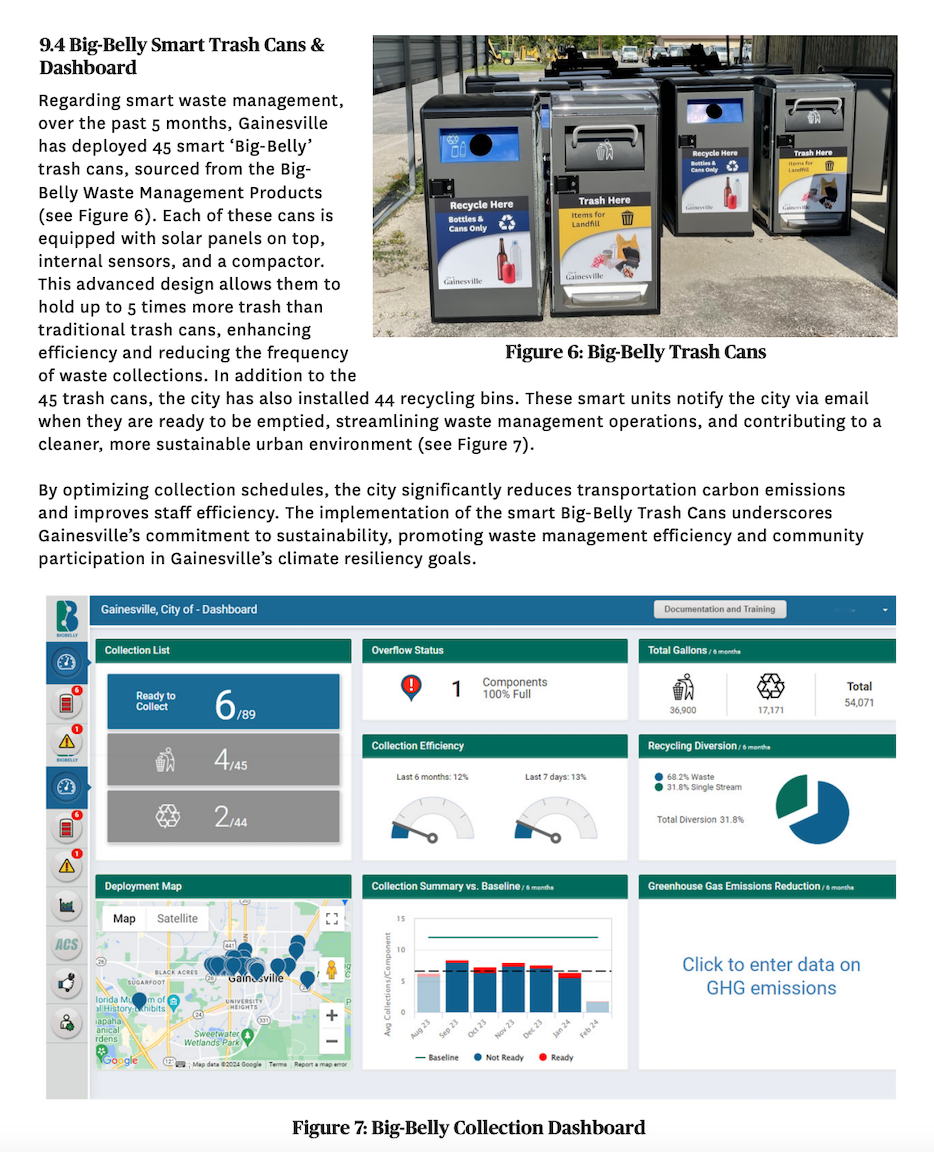
“Each of these cans is equipped with solar panels on top, internal sensors, and a compactor," the GCR Plan states. "This advanced design allows them to hold up to five times more trash than traditional trash cans, enhancing efficiency and reducing the frequency of waste collections... By optimizing collection schedules, the city significantly reduces transportation carbon emissions and improves staff efficiency. The implementation of the smart Big-Belly Trash Cans underscores Gainesville’s commitment to sustainability, promoting waste management efficiency and community participation in Gainesville’s climate resiliency goals.”
The Big-Belly trash cans were subject to controversy after they were installed in Philadelphia, with residents complaining they attract more garbage.
Alachua County resident Jo Beaty wrote a letter to the City Commission, saying they should have data on the Big-Belly trash cans after possessing them for three years. She urged commissioners to not approve of the purchase, especially on the consent agenda.
GnvInfo submitted a public records request to the city for a cost-analysis evaluation of the Big-Belly trash cans and any data, studies or metrics relating to their effect on the environment and city finances. The request is still processing.




